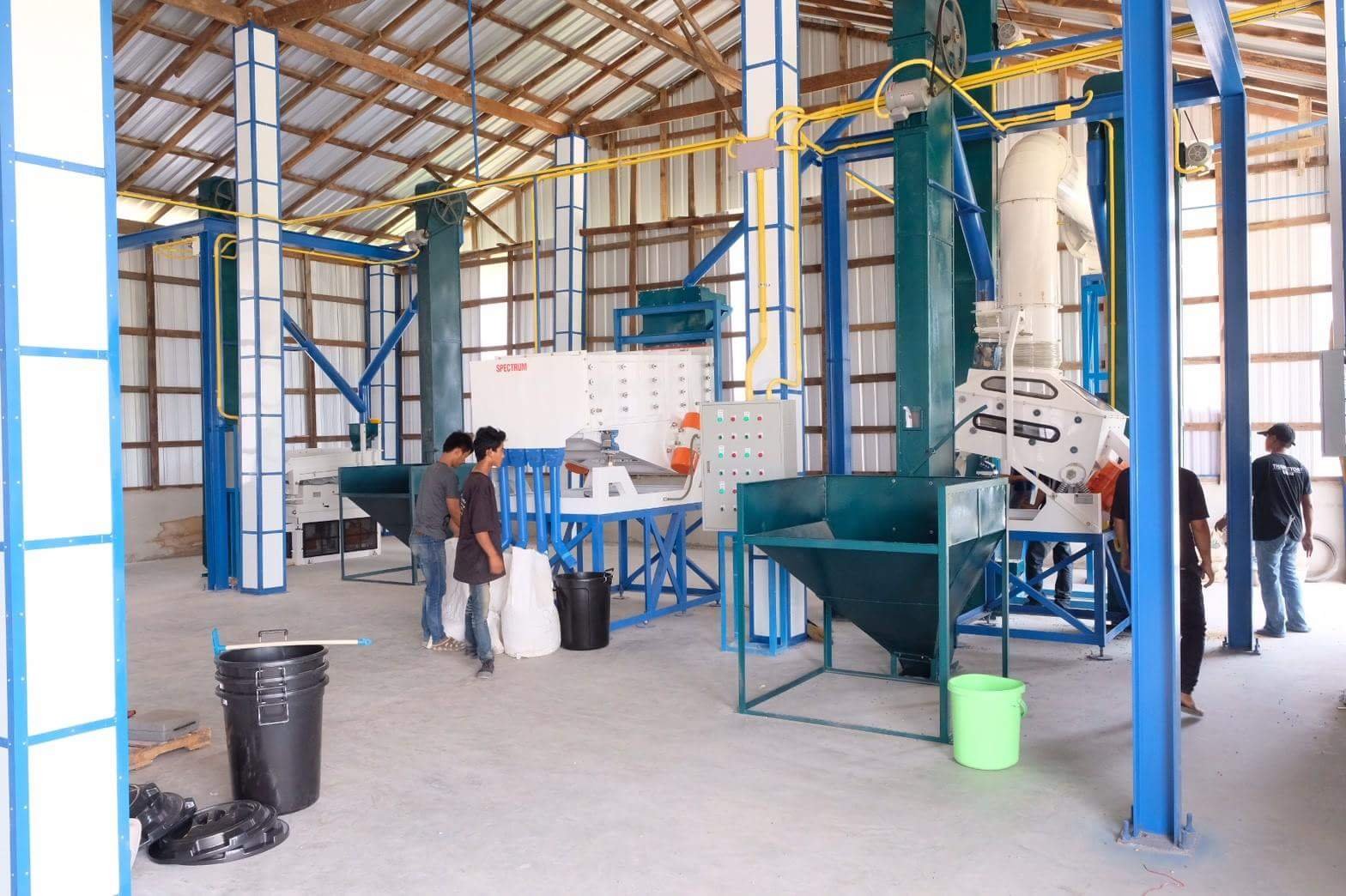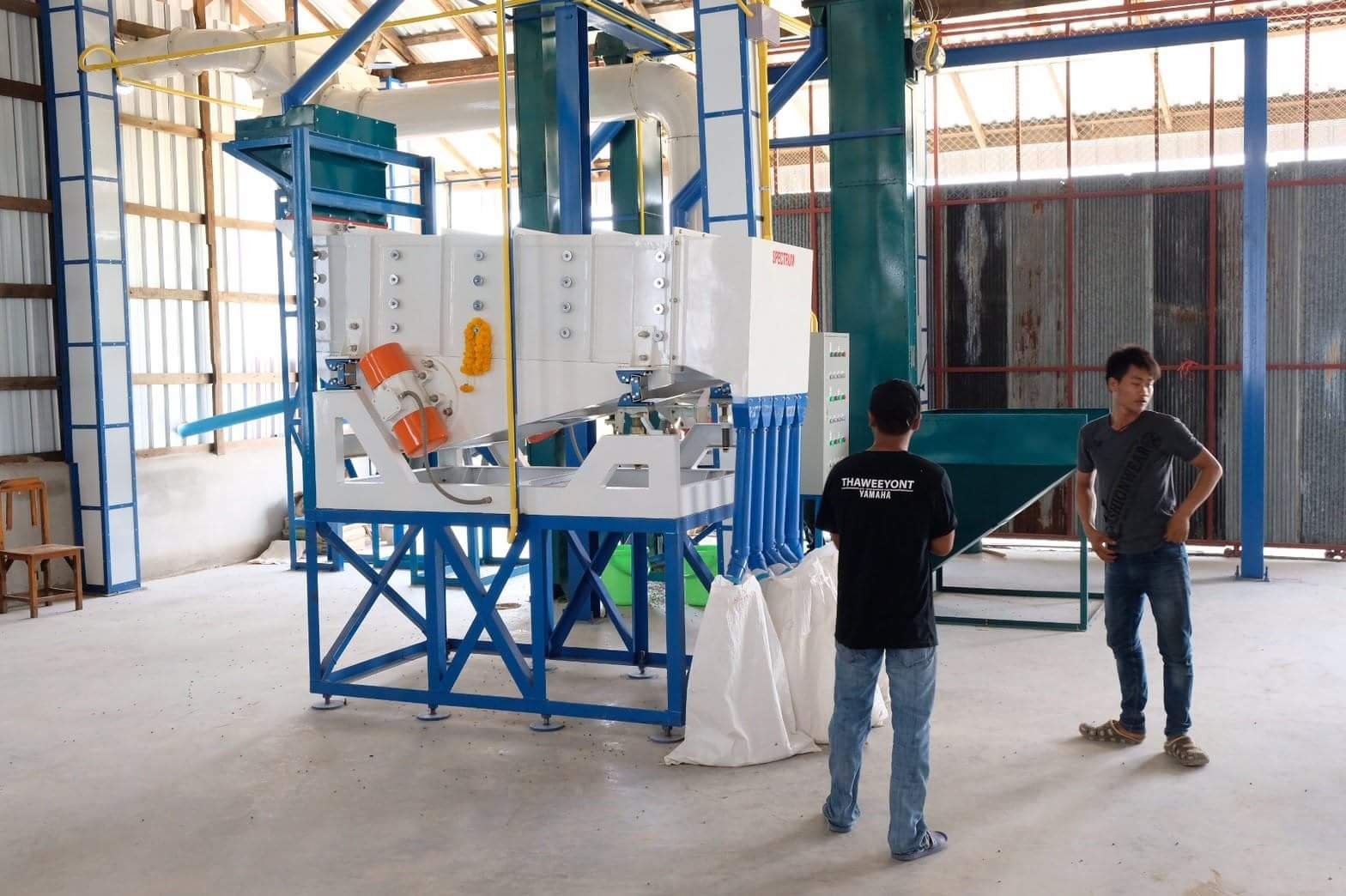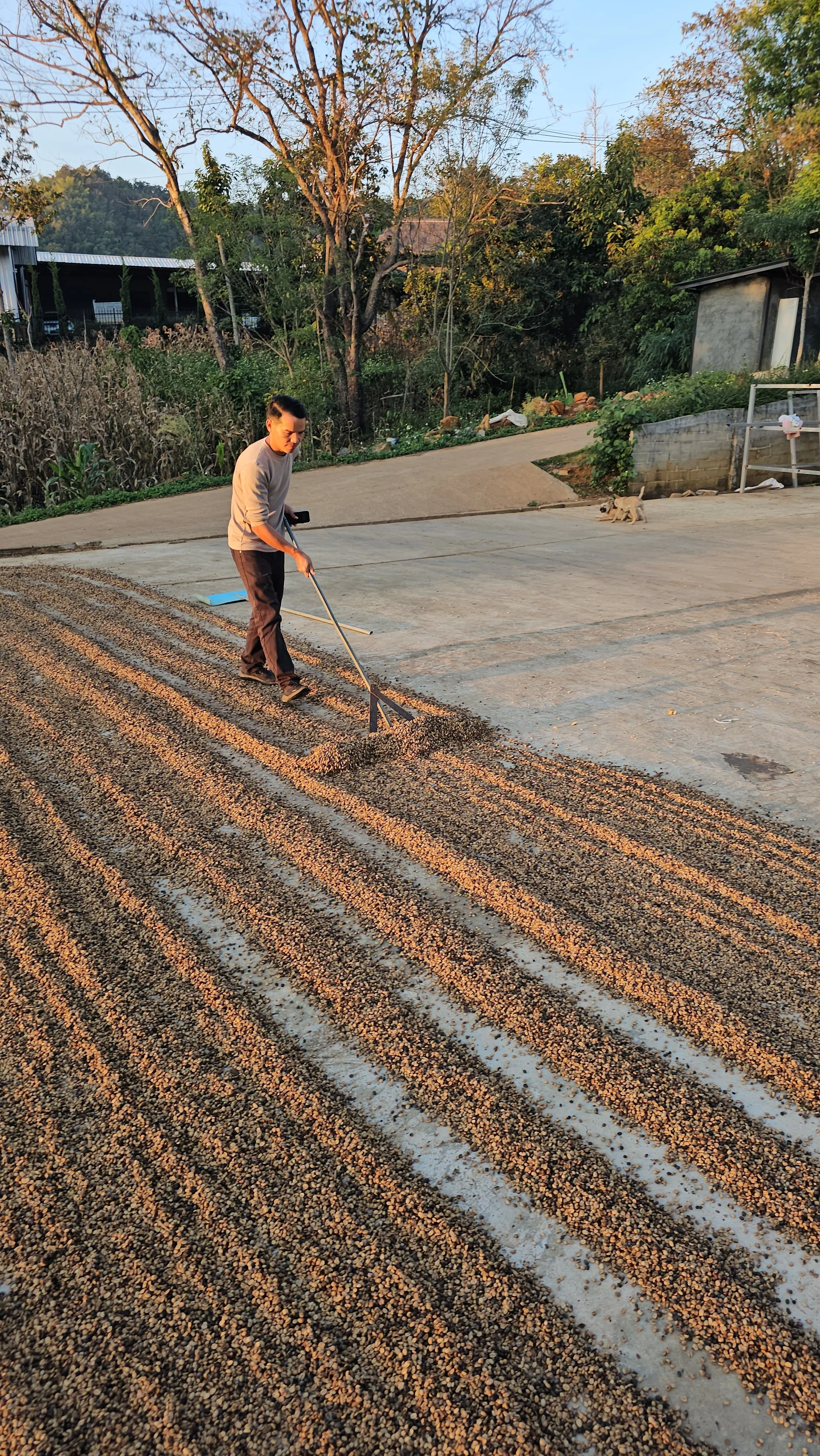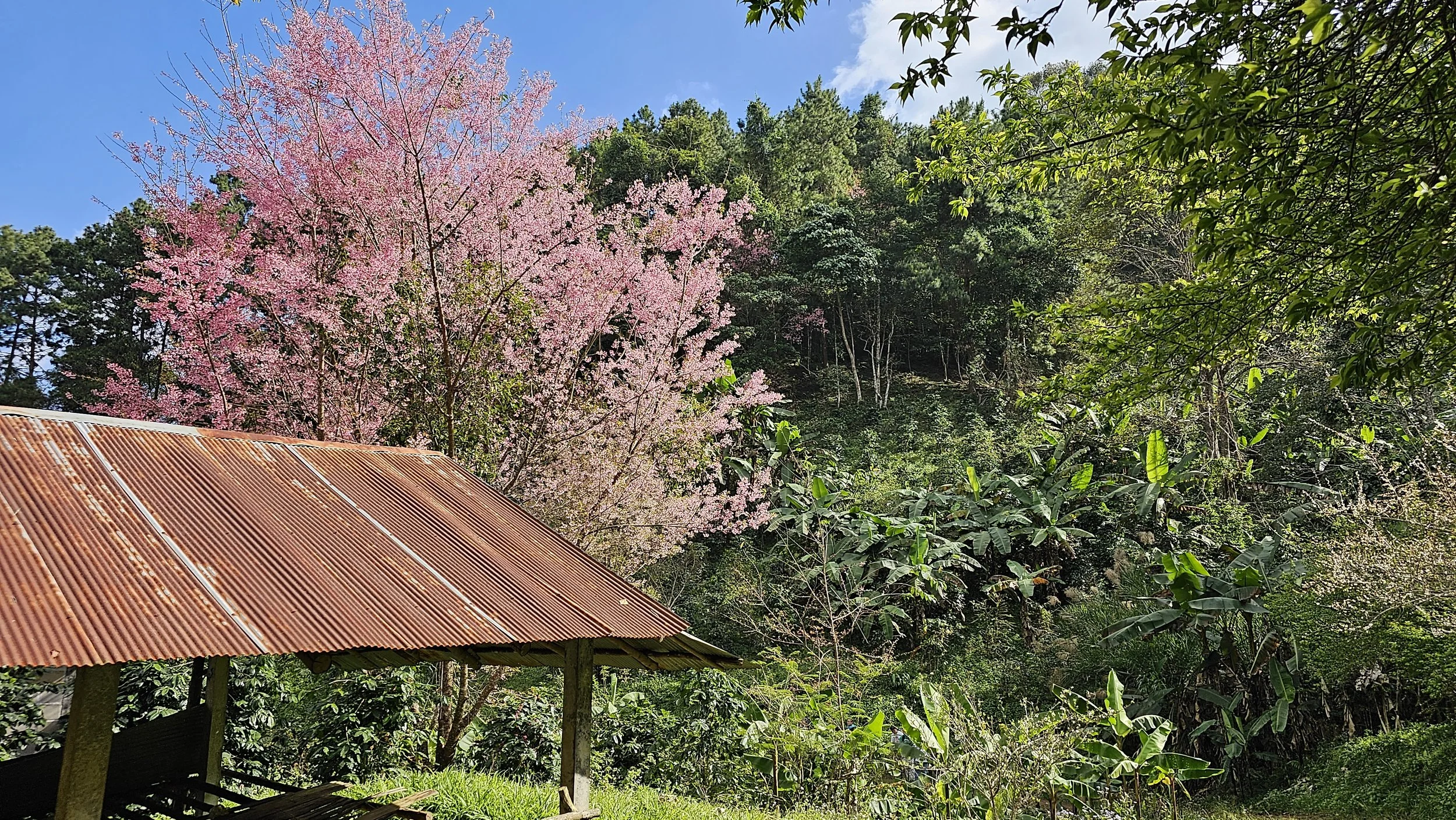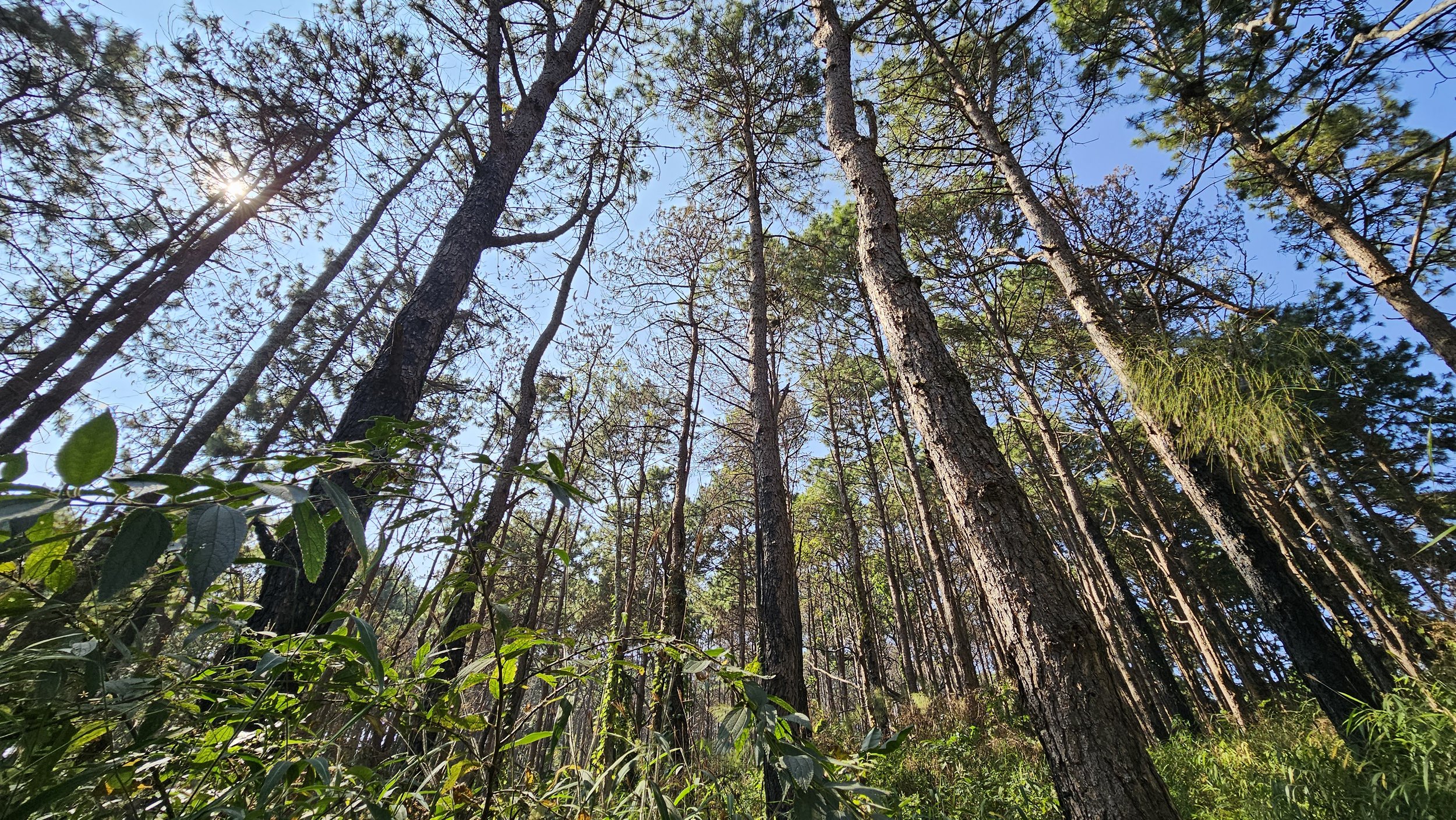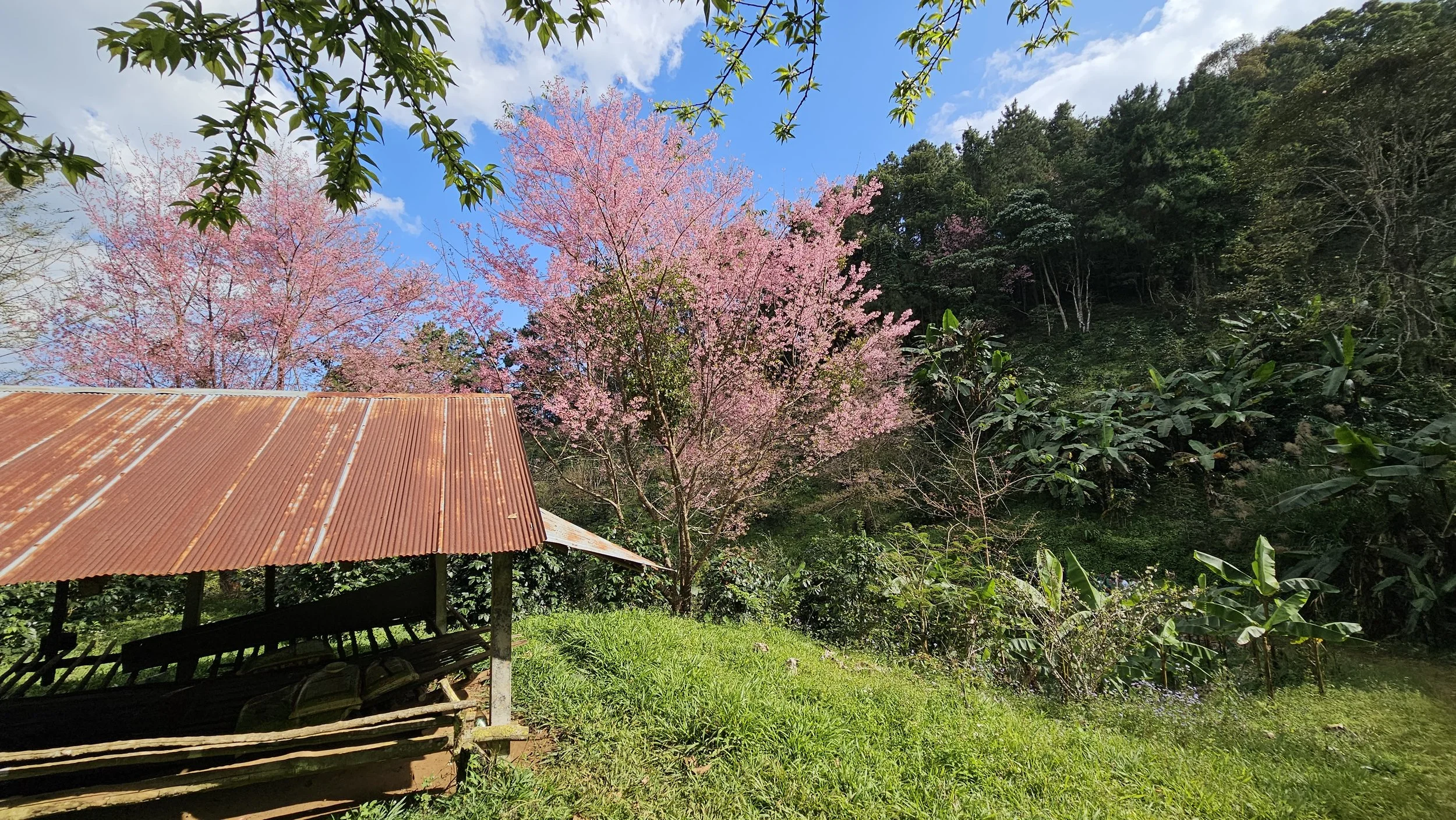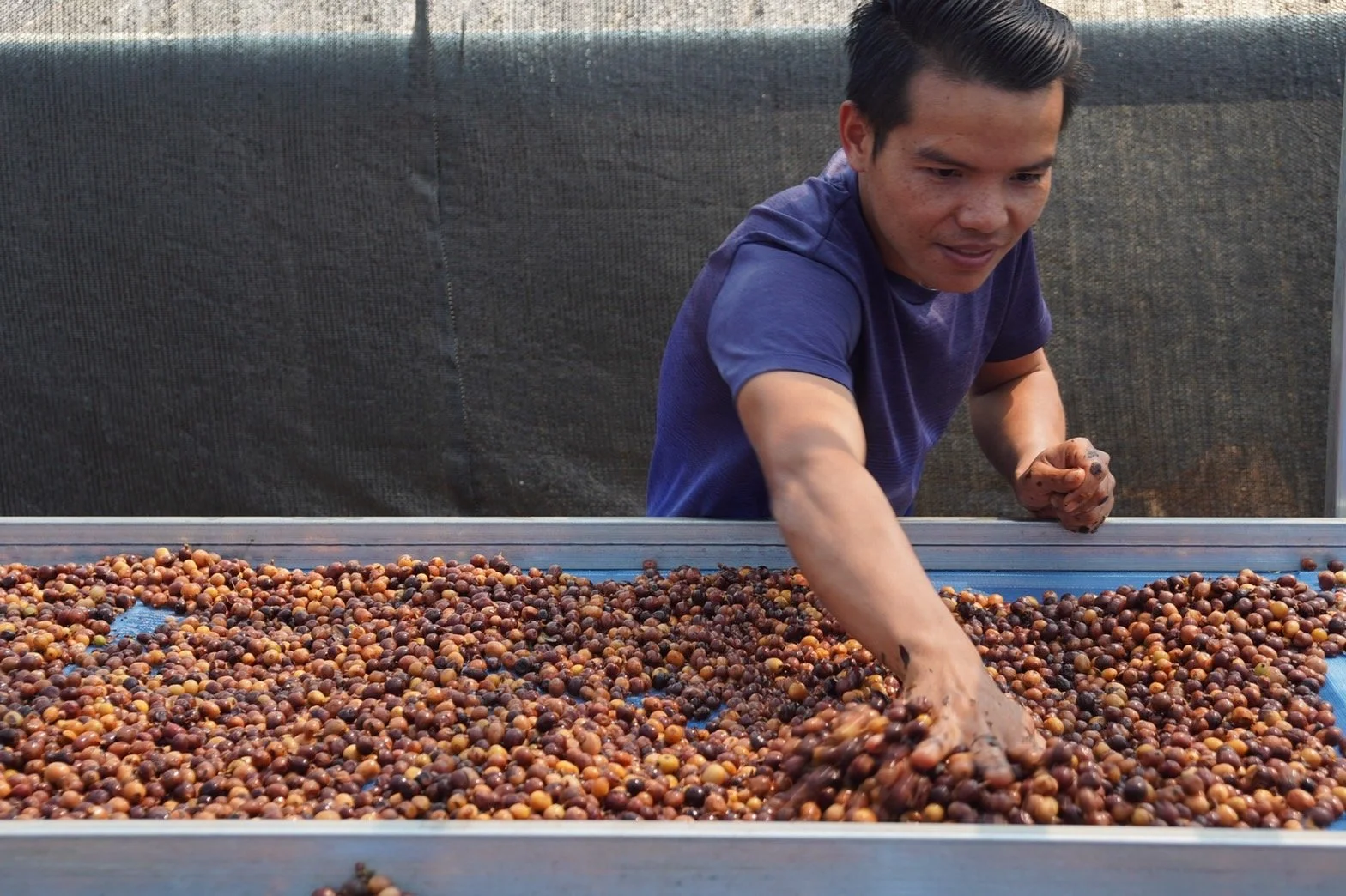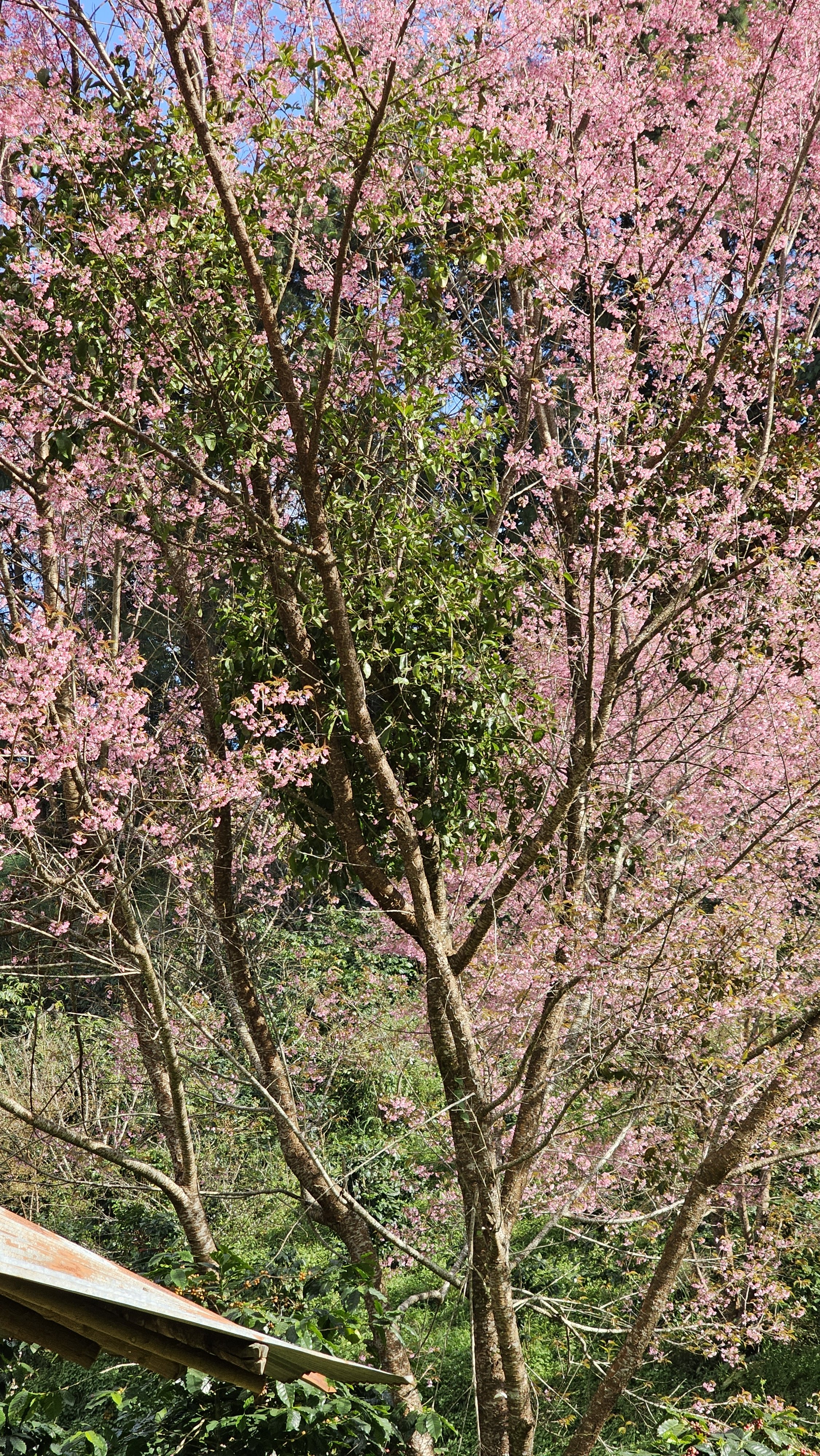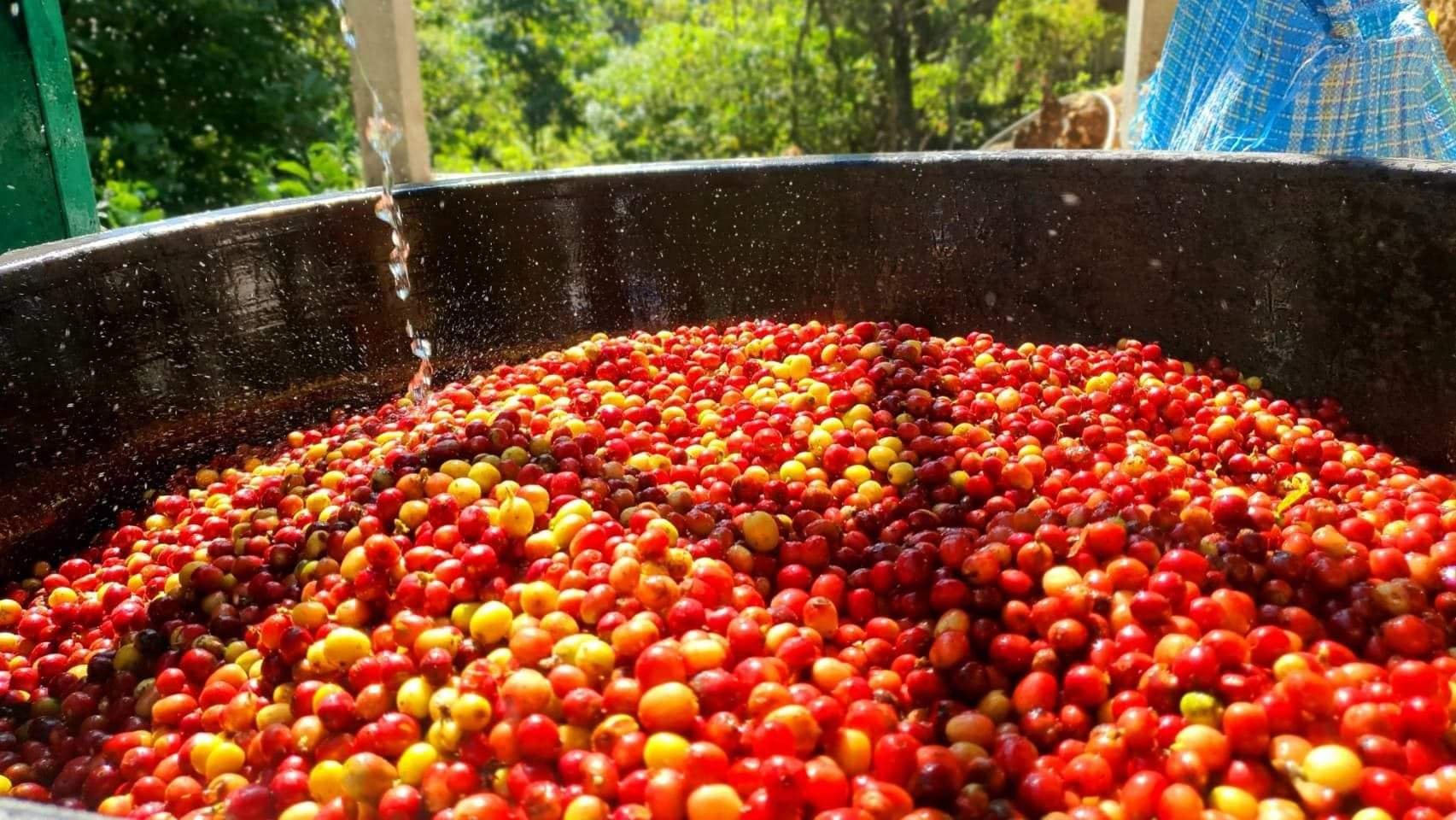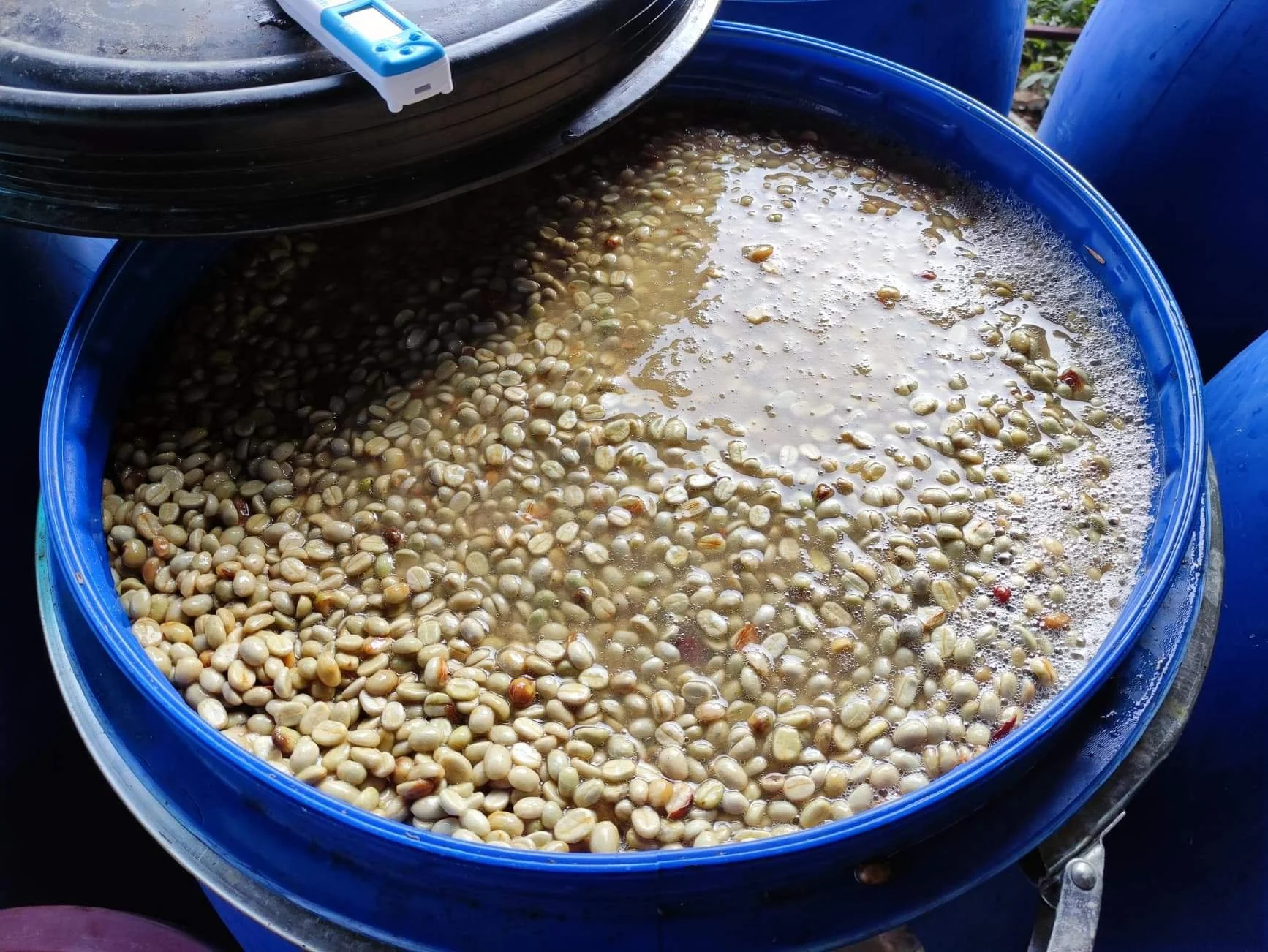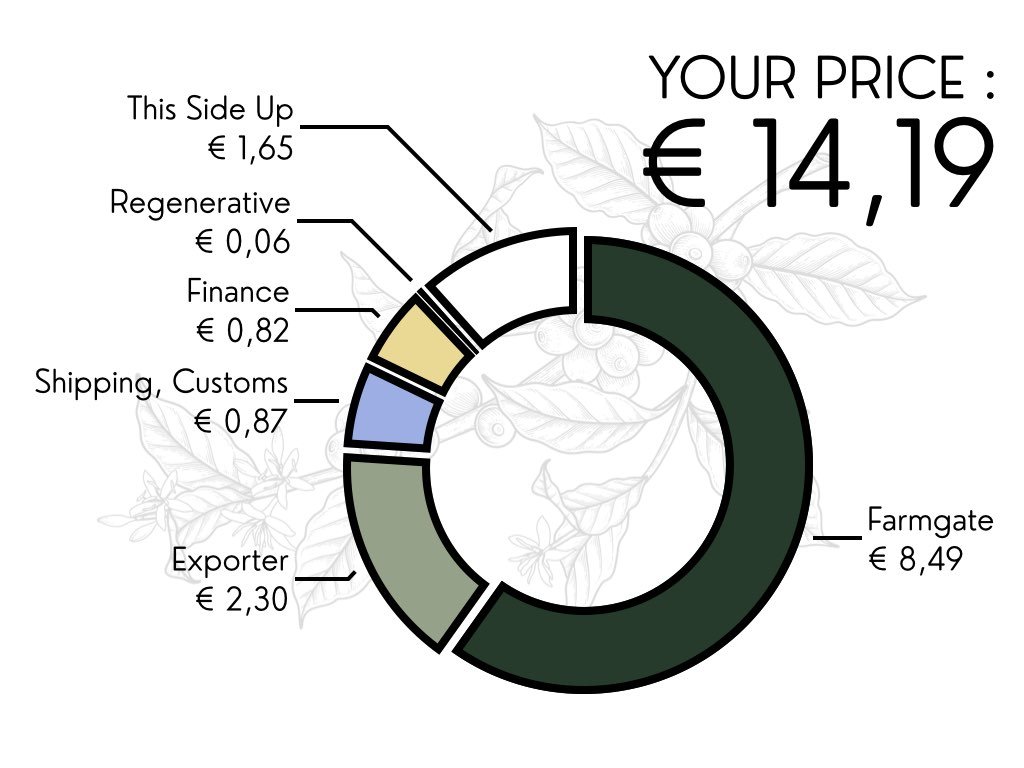A SOPHISTICATED YOUNG ORIGIN
Fuadi plays many roles and wears many hats: he is a process designer, an importer, a dry miller, and a financier. He's also an academic and a great risk-taker. Thai coffee was relatively unknown in the international coffee scene before Fuadi and Jane created Beanspire in 2013. The increased production, accompanied by its processing innovation, is almost entirely thanks to Thai specialty roasters and the vibrant third-wave coffee scene. In fact, Thailand only exported 1% of its entire coffee production to the international market when Fuadi stepped in. Poised to bring these jewels to the specialty market, we cannot help but assume today's 10% is thanks to Beanspire.
When we met in 2016, we were struck by Fuadi's commitment to the farmers, particularly with the hill tribe minority communities. He aimed to offer alternatives to them that could last, that offered security and lifelong stability. He also aimed to offer Thai coffee to the world.
Beanspire was born with a clear strategy and a vision: to work closely with farmers to improve processes and quality; to be the alternative for the younger generations of coffee growers; to become, ultimately, the financial solution for the farmers. We are honoured to sit at the table when designing this future for an origin unlike any other.
These are the 2025-2026 season Beanspire Coffee farmers.
Click on their pictures to read their full bio.
Beanspire works with approximately 50 different coffees and 68 households.
Huai Chompu
Chiang Rai
hectares: 3
trees: 4.000
Our Thai value chain is organised to a large degree by Beanspire. Not only did they acquire a dry mill this year, they also take care of the entire overseas shipping process for us.
Traceability
You can find all the signed contracts and shipping documents that we made with Thailand since 2021 below (Google Drive).
2016 : first sales of Beanspire coffee (Doi Saket and Doi Pangkhon) in Europe
2017 : imported natural, honey and experimental lots from Saket. Visited Mr. Opp for the first time to discuss future cooperation Connected barista Rob Clarijs to Beanspire who competed with Thai coffee in the New York Masters, bought 60% more coffee from Beanspire compared to the year before.
2018 : Beanspire helped build a new, state of the art wet mill at Doi Pangkhon. Many roasters and traders went to visit Ata and Pupae, their coffee popularity has reached a tipping point as most of it sold out before it arrived in Europe. At Doi Saket they created an experimental semi washed lot that should combine the best traits of the washed and honey processes.
2019 : visits by by several of our roaster clients continued and around 90% of Beanspire’s harvest was sold directly to loyal fans throughout Europe.
2020 : prominent roasters like Has Bean started to carry Beanspire’s coffees in their assortment, further raising the origin to prominence, especially the processing innovation which has reached world standards. Added the Wiang Pa Pao blend to our assortment that serves as a more affordable espresso blend.
2021 : added six new farms to our assortment, firmly establishing Beanspire as a local curator of specialty coffees for the European market. During the pandemic, coffee sales did not suffer and even increased by 30%
2022 : first full container of coffee from Thailand for This Side Up. Revamped our Beanspire page to showcase many more of the farmers that Beanspire works with. This year, the total household count is 68, and the number of different coffees with different processing methods totals 50!
Our QC’s Flavour
impressions
Coming soon
Renata Hardewijn, May 2025
RECOMMENDED IKAWA PROFILE:
We noticed in previous years that TSU Washed 1 wasn’t developing the beans as fully as possible so we tried Christopher Feran’s High Alt itude 1800m profile which gives fantastic results. We actually adapted our standard Washed profile to have a lower drop temperature (145 degrees Celsius) and a few more seconds total roast time so you can use both - they now develop acidities in these dense beans beyond citric into smooth malic flavours, allowing the chocolate body and layered sweetness to develop adequately. Cut the roast short if DTR exceeds 23%.
Ata and Pupae Becheku / Fuadi Pitsuwan
We communicate with Fuadi at Beanspire for all our practical dealings, but Ata and Pupae are more than willing to answer any questions you might have directly.
Email: fuadi@beanspirecoffee.com
Phone: +6682 191 4473 / +6602 594 3231
Doi Pangkhon, Chiang Rai Province, Thailand
-
Thailand is not traditionally known as a specialty coffee producing country, yet it has been producing Arabica coffee since the early 80's. It started off as part of the Thai King’s opium eradication project. Because Arabica coffee thrives in a similar condition as opium, it was selected as a substituting crop against the cultivation of the illicit plant. Today, Thailand produces about 8,000 tons of Arabica coffee, mainly in the mountainous north of the country. On top of that, Thailand produces about ten times as much Robusta coffee, making it the third largest coffee producer in Asia. Thai specialty coffee is rarely seen in the top specialty roaster segment abroad. The main reasons for this are twofold. Thailand is a middle-income country and has a thriving local coffee market. That means relatively high production costs for a relatively undemanding coffee market.
Having said this, a strong specialty coffee segment is emerging. At least on the consumer side, the Third Wave is quite well established, with artisan roasters and cafés in Bangkok and Chang Mai. These roasters have recently begun to develop and buy local coffees too, not in the least because of import tariffs on foreign coffees. However, this scene is still very small and for now, hardly creates enough incentives for farmers to improve the quality of their coffee to specialty grade. So even though they have been doing a great job at pushing the limits of Thai coffee, the specialty coffee scene would be greatly aided with more specialty coffee knowledge and global integration.
Why We Care
This Side Up sees an important opportunity to showcase Thai coffee to the world's specialty coffee scene, not despite but precisely because of the higher production prices and living standards. Exposure to the specialty coffee phenomenon in relatively stable economies like Costa Rica and Panama has made them leaders in innovation, labour and environmental protection - and equally importantly, has made coffee farming, even on a micro-mill scale, lucrative for the next generation. On a larger scale, the gigantic coffee traders will eventually run out of cheap places to source bad coffee, and specialty coffee will surely continue to grow and disperse. These factors, in our view, mean that equality, quality focus and integration will slowly but inevitably become the future of the entire coffee producing world.
As a global society, we should be getting used to consumer prices that reflect a higher level of country development and social justice. We therefore have the ambitious goal to demonstrate, however small we are, that by kickstarting an increase in exposure and quality investment, stable Thailand and its young generation of coffee entrepreneurs could enter into a race to the top, become a country known internationally for its superb coffees - and in time set an example for all of East Asia.
Beanspire
Enter Beanspire, an exporting company made up of a group of young Thai specialty coffee enthusiasts who exist to provide a window for Thai specialty coffee smallholder farmers to the world. Their mission is much like that of This Side Up - but since they are mainly based in origin, our combined value was apparent from the start. Fuadi Pitsuwan was introduced to me by a mutual friend and tea expert, Janjarang Pat Kijitkhun and we quickly became sparring partners about the possibilities of Thai coffee in the European market. We decided to do a pilot project with the 2016 harvest aimed at attracting the interest not only adventurous roasters, but of other, larger importers as well.





















